This is a guest post by my friend Chris, who took all the photos and video footage not otherwise credited.
AFTER Colnbrook, I travelled north to the belt of early industrial cities that stretches from Liverpool on the Irish Sea to Sheffield. This is in many ways where the Industrial Revolution began, and where railways began as well.
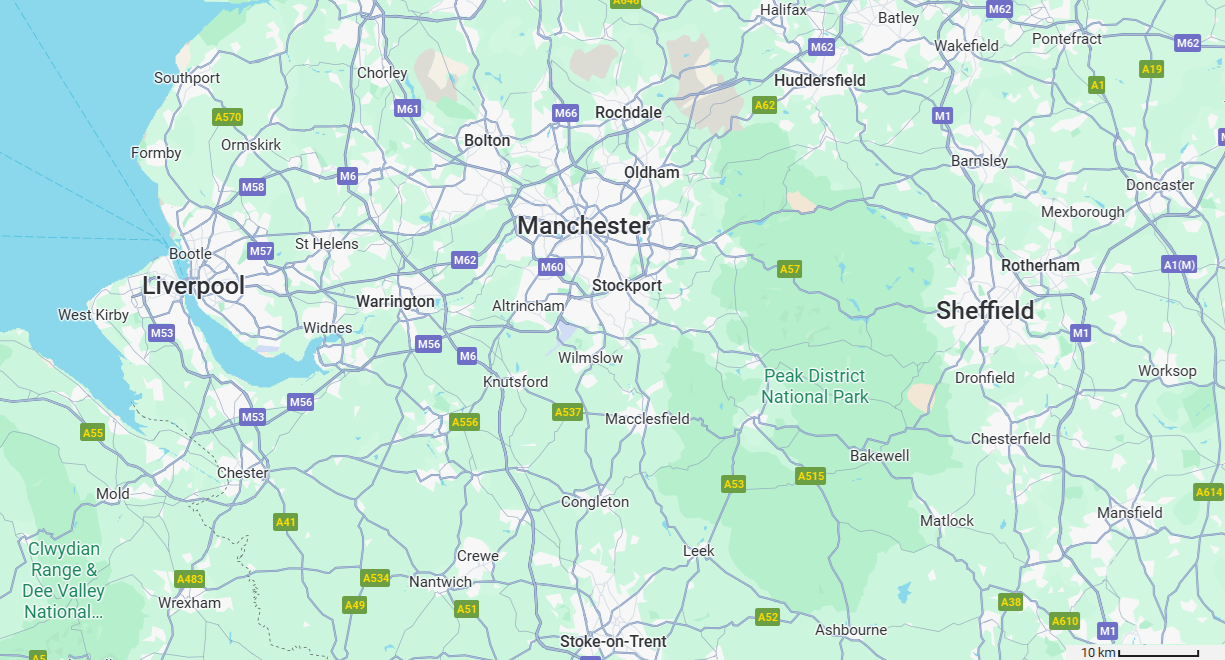
It fostered a huge prosperity and pride, though the area has fallen on hard times in more recent years. Indeed, the population of Liverpool has fallen by about half over the last half-century or so.
Travelling north from London, I arrived at Crewe, and then passed through a vast railway cutting which is nearly two hundred years old, before arriving in Liverpool.


There is no more spectacular sign of Liverpool’s past prosperity than St George’s Hall, said to be the largest neoclassical building in Europe.
_(2)_Brit%20in%20Seoul%20Wikipedia.jpg)
The next few photos show what St George’s Hall is like inside. There is an amazing collection of photos on Wikipedia, from which these are just a few!

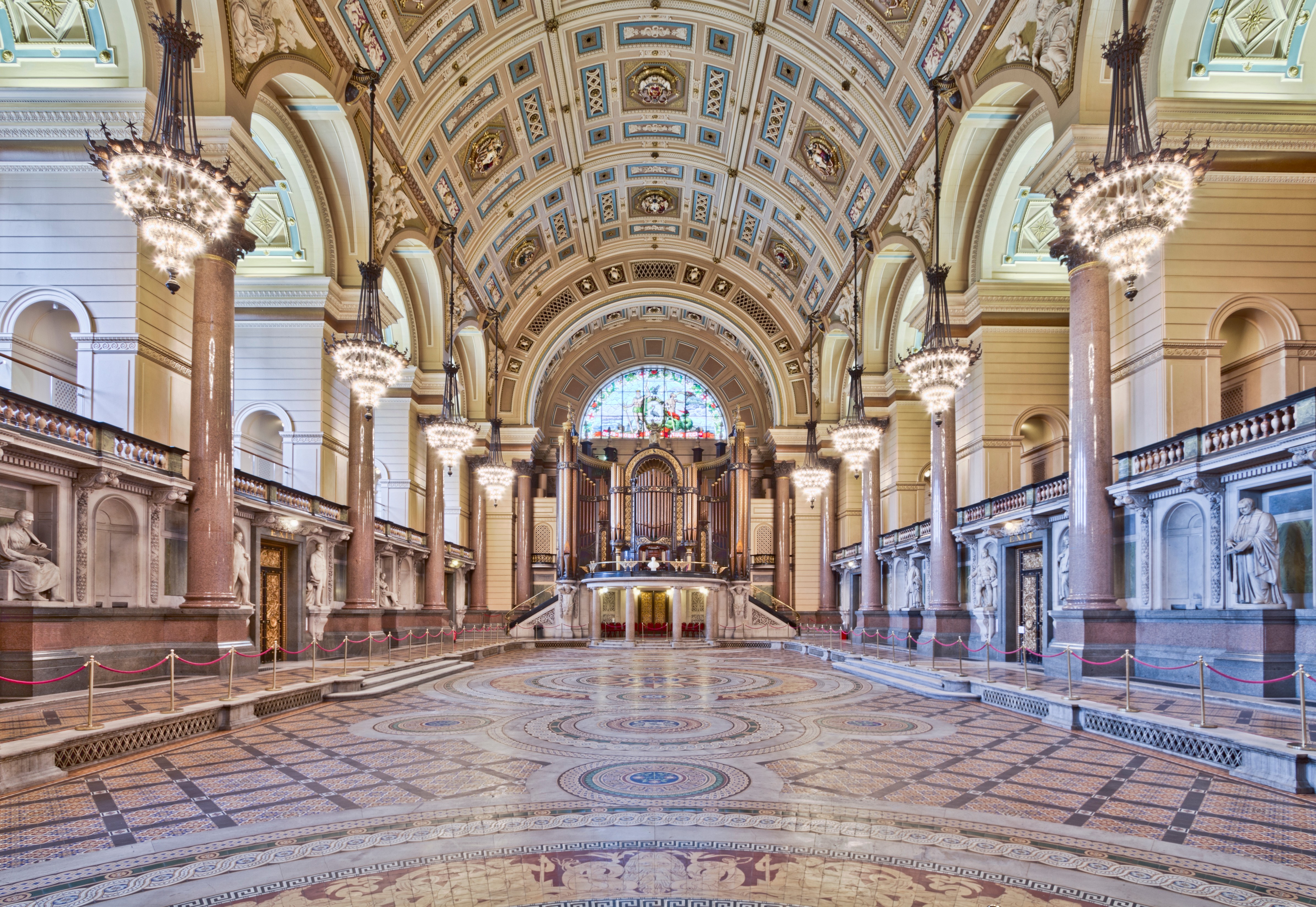
In the following one, SPQL stands for Senatus Populusque Liverpoolensis, a play on the famous Roman motto SPQR.
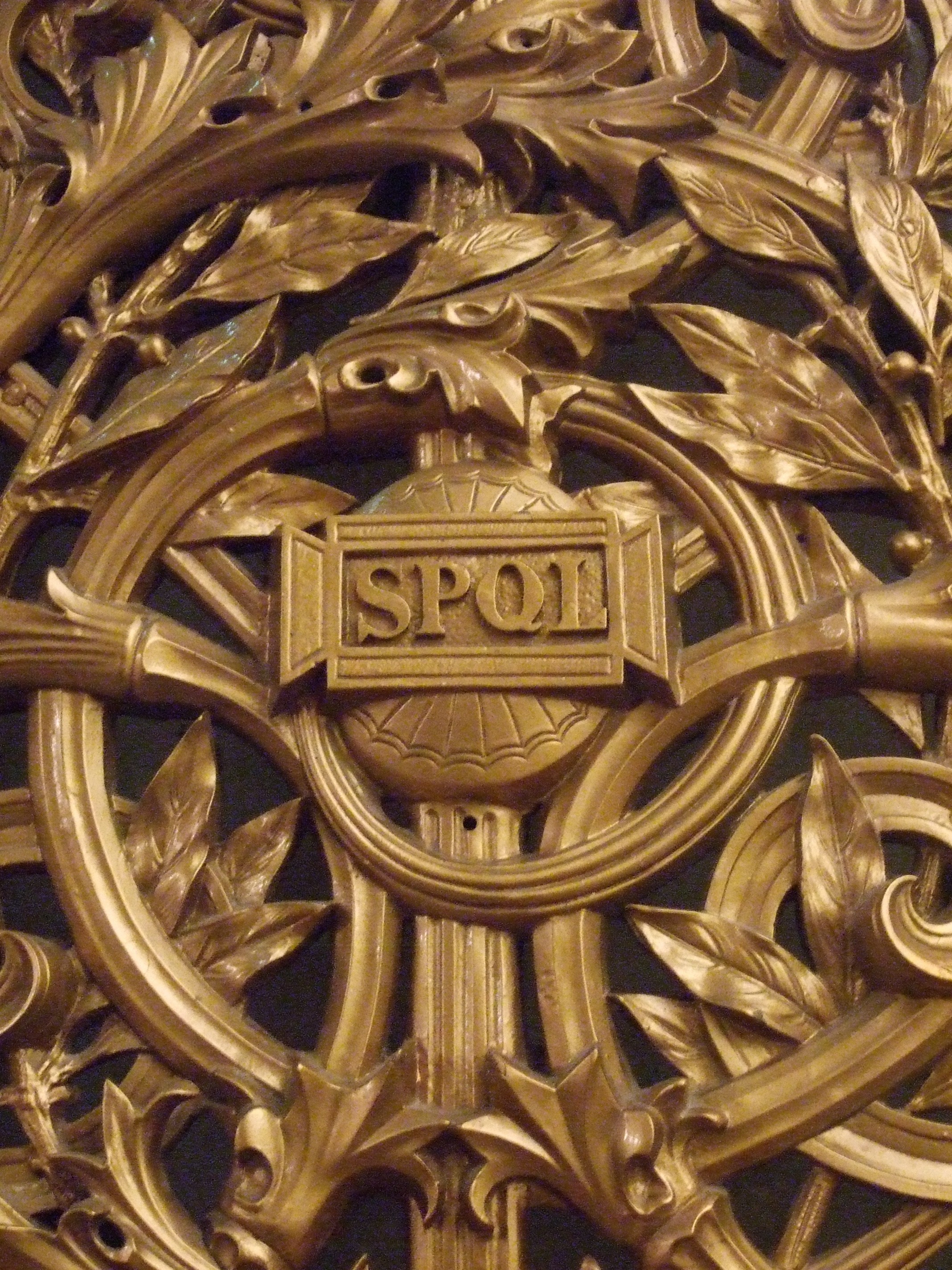
The symbol of Liverpool is the Liver Bird, pronounced Lyver Bird. Liverpool’s Latin motto means ‘God Granted us this Leisure,’ i.e., the funds to enjoy it.
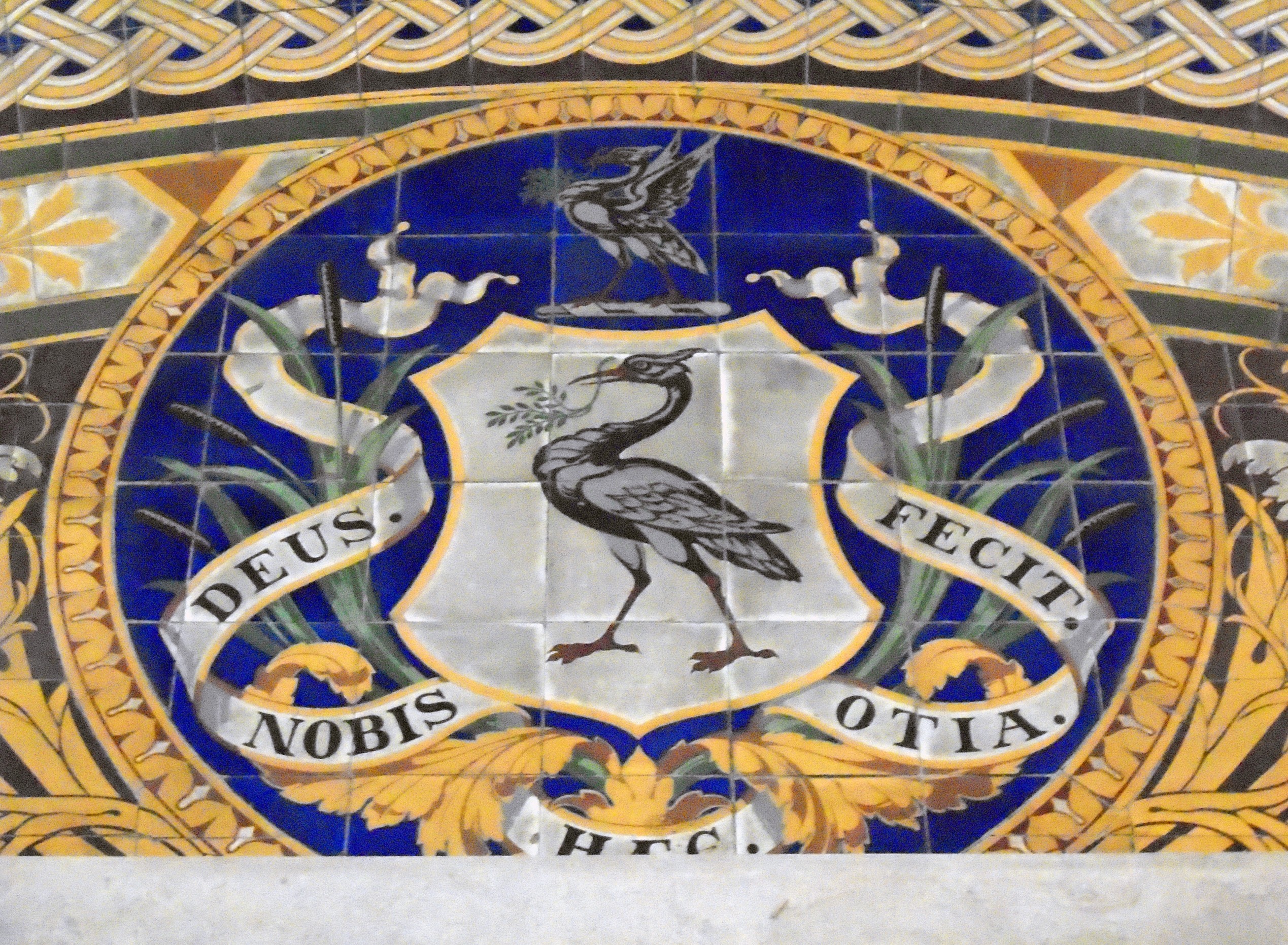
But as I say, Liverpool’s been largely depopulated in recent times. The next stop, heading eastward, is the Borough of Warrington, with its motto Deus Dat Incrementum, or God gives growth, an expression of confidence that you can also be seen in its wonderful town hall and the Golden Gates in front of it.
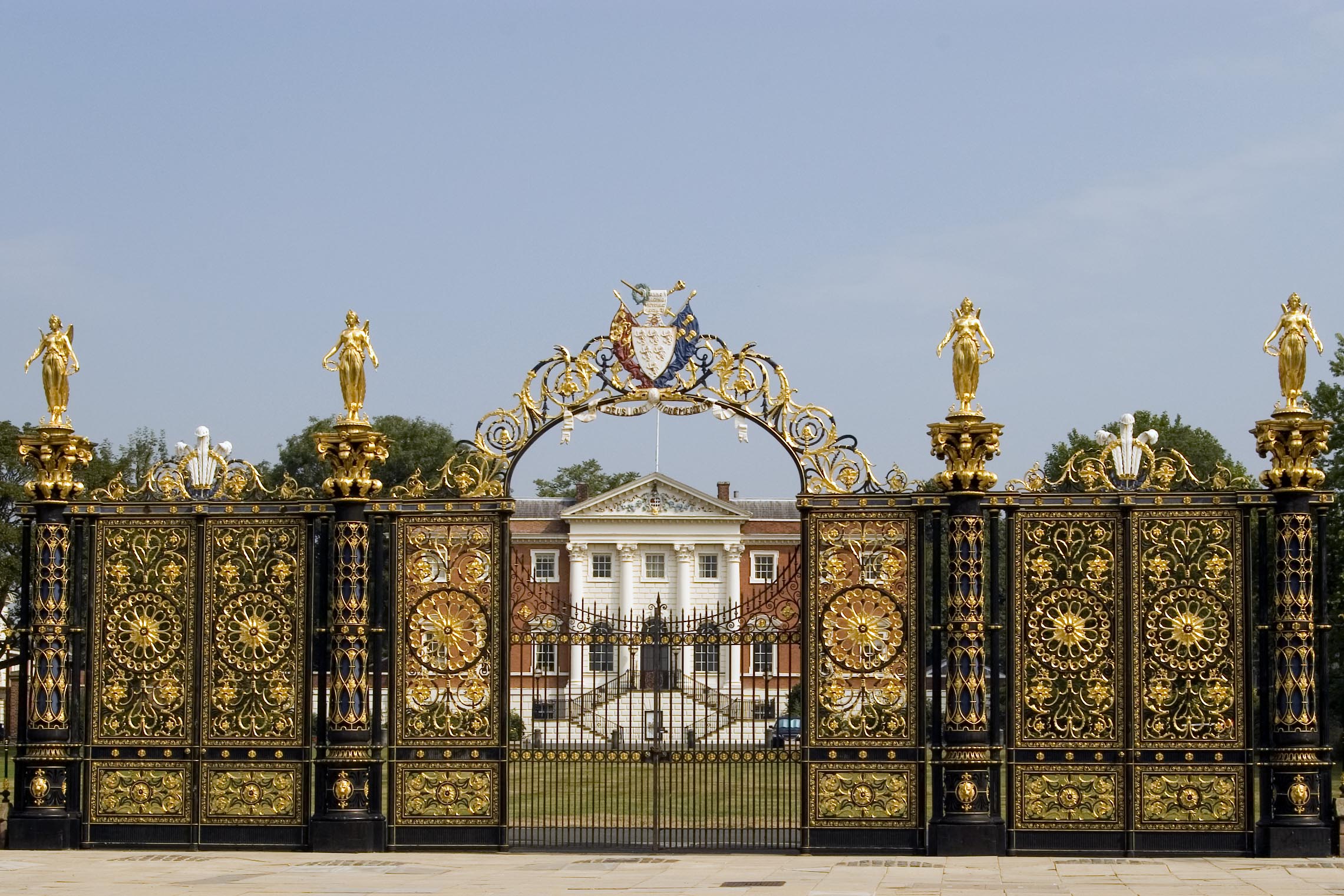



After Warrington, you come to Manchester, which seems to be booming still.

(Mary Jane also talks about Manchester in an earlier post.)
One of the reasons I was on this trip was to study some of the tramway systems of Britain and Europe. For instance, Manchester has a tramway, but it has really high platforms and doesn’t run at street level like most, which is an obvious drawback. You can see the problem in the following video.
After Manchester, I was driven over the Peak District, which Mary Jane has blogged about here and here, to Sheffield.



Sheffield has an amazing railway station!

Like Rome, Sheffield was built on seven hills. I hiked to the top of one of them to see the Cholera Monument, built in the 1830s in memory of a local cholera outbreak and the more than 100 people who died as a result.
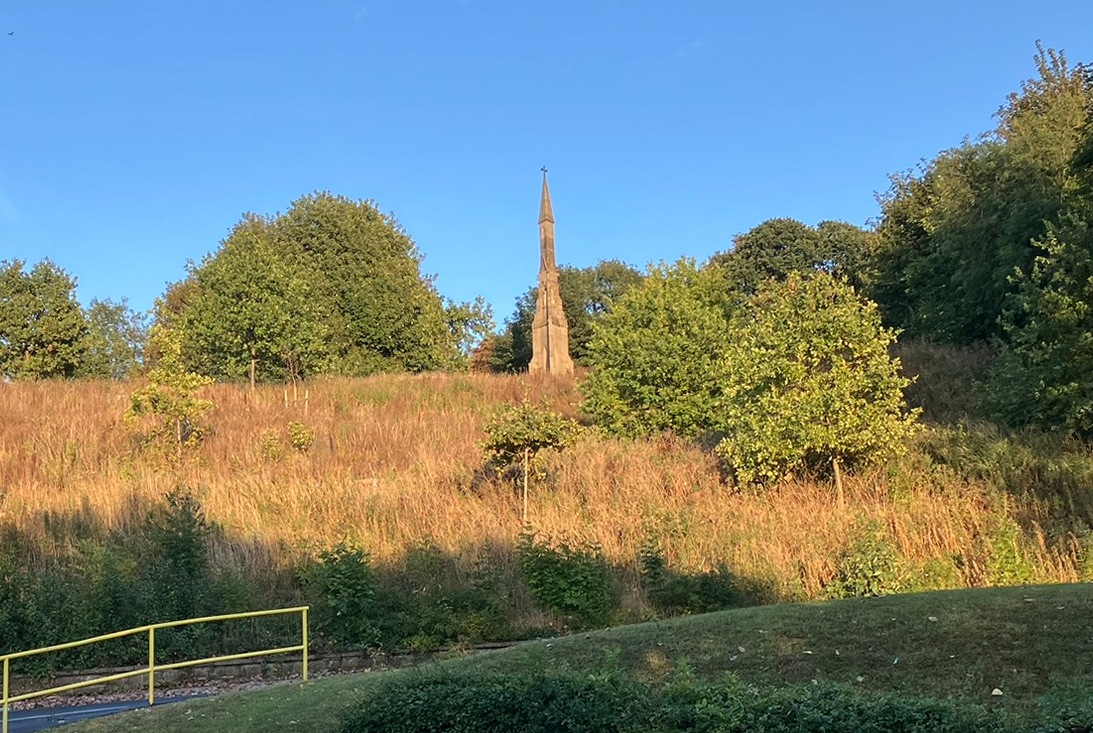
The monument is three-sided, with the allegorical figures of Faith, Hope, and Charity. In those days, nobody knew what caused cholera or how to treat it effectively, so Faith, Hope, and Charity were about all they had.

In truth, it was caused by dirty water in a town, famed for steel, that grew tenfold in population in just a few decades during the Industrial Revolution. Apparently, at one point, industrial Sheffield was so squalid that the average life expectancy was just 27.
(You can read more about all that, and much else, in another post by Mary Jane called Sunday Morning in Sheffield.)
On a different note, this part of the country is also famed, like parts of Germany, for black pudding, a sort of sausage made from pigs’ blood, oatmeal, and ground-up fat, plus spices. It’s fair to say that it is not for everyone. The recipe probably originated in desperate days of yore, like the ones I have just described.

Sheffield is full of picturesque old buildings, paid for by the wealth that accumulated after the early problems of the Industrial Revolution were overcome.


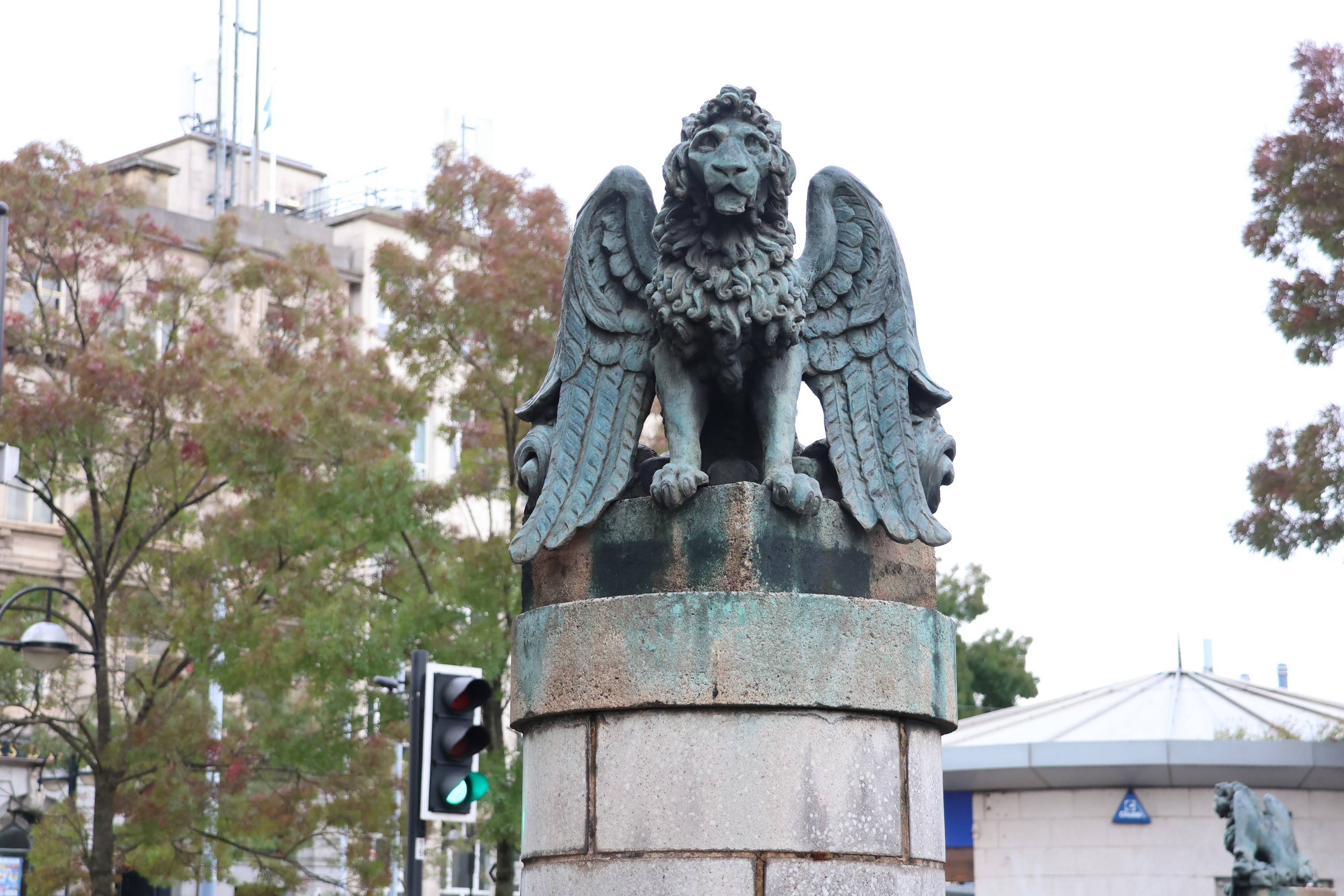
Sheffield also has a tramway, called the Supertram, which is very noticeable downtown, and runs at quite a steep grade in places; it’s a bit of a myth that trams only run on the flat.
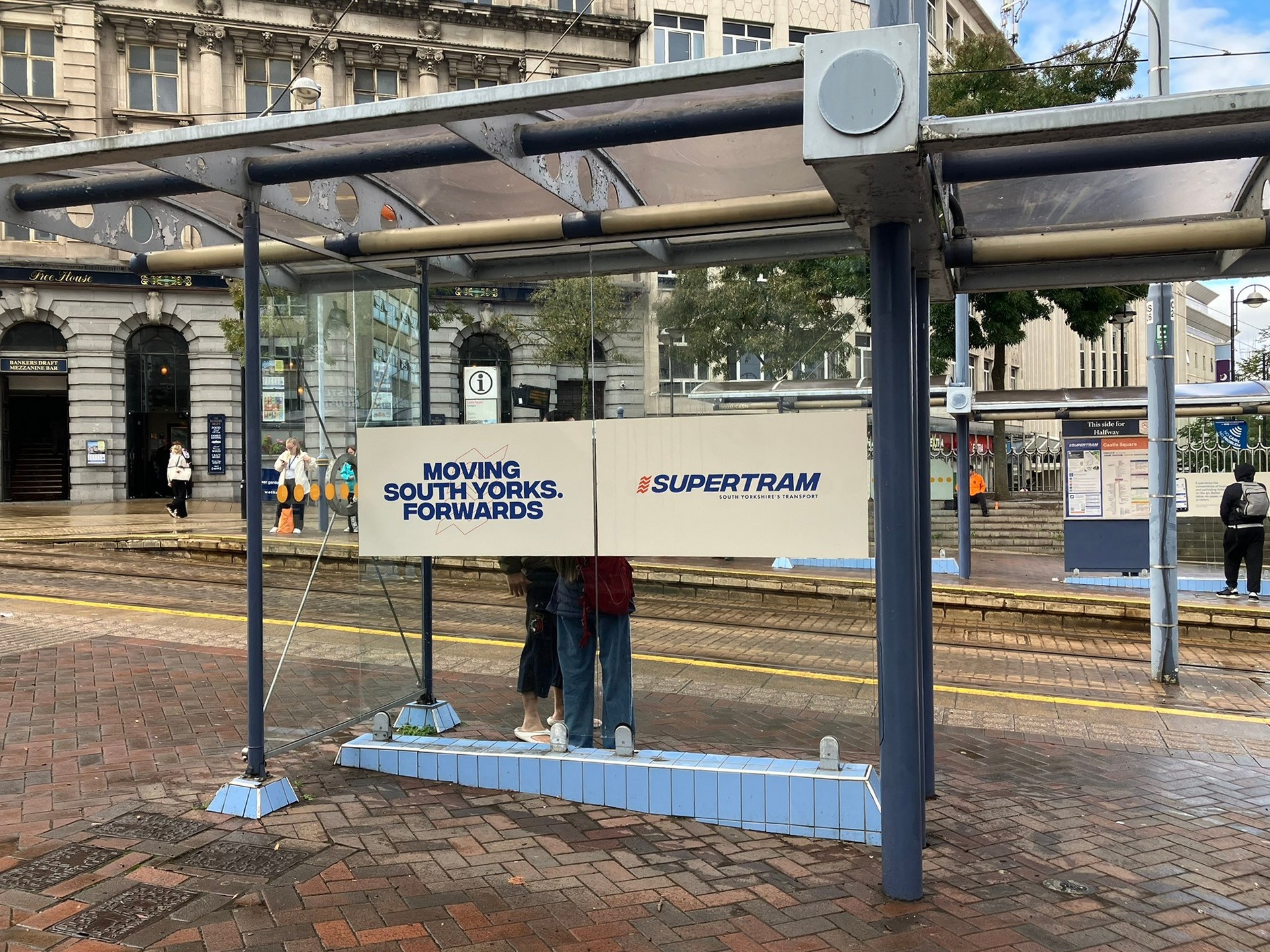

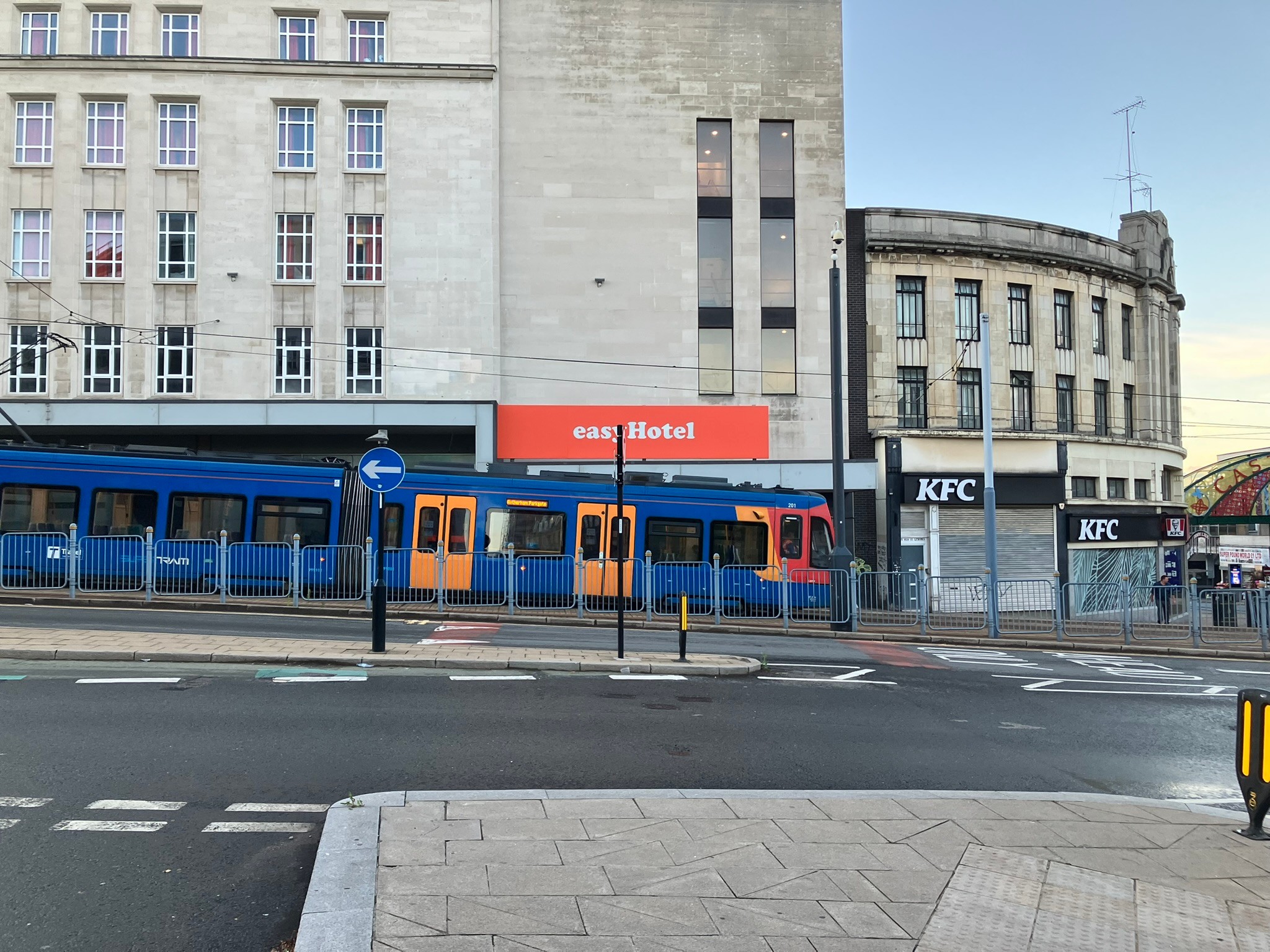
I saw a statue of King Edward VII, who died in 1910, that hailed him as a peacemaker.
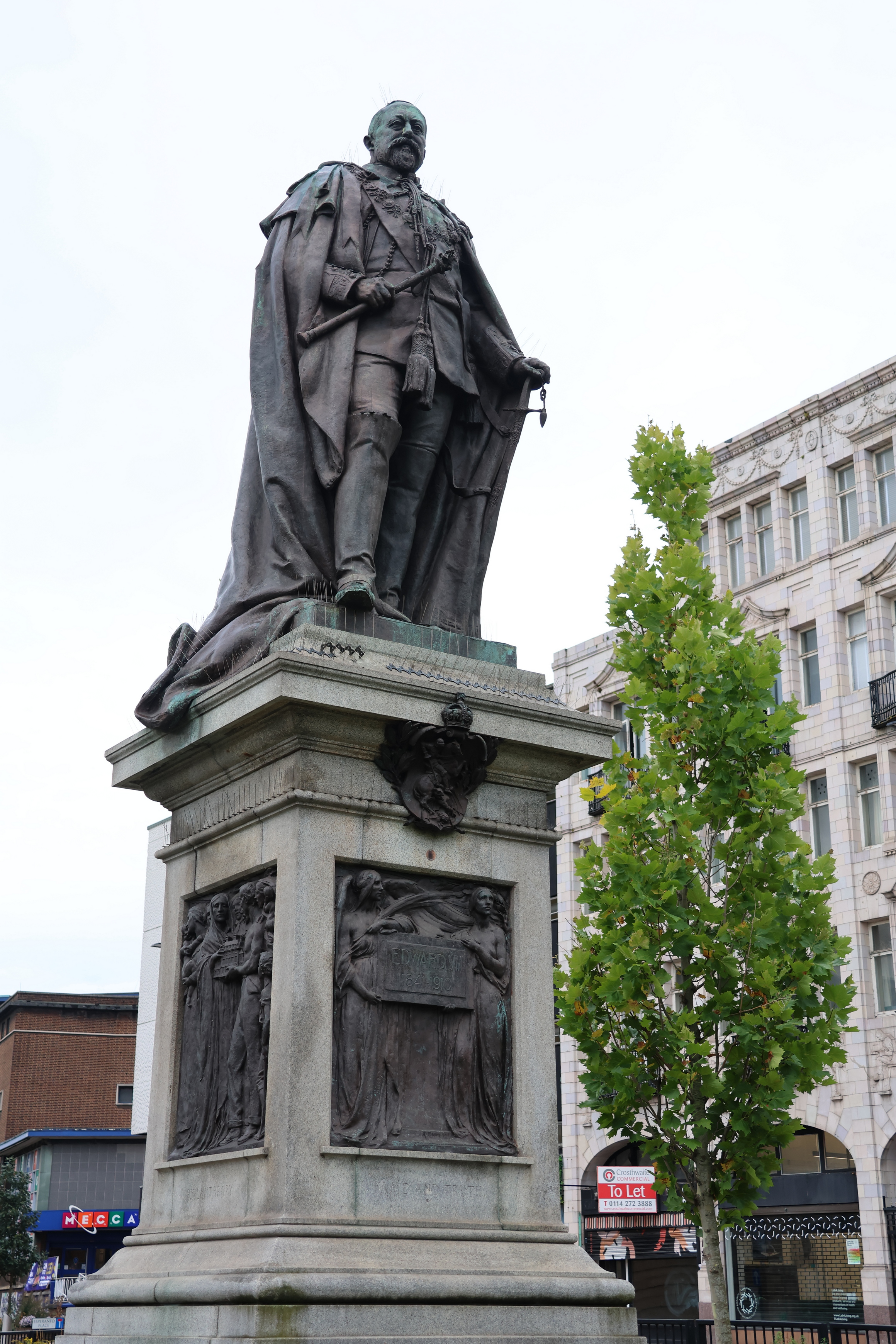
Which is ironic, in view of subsequent events.
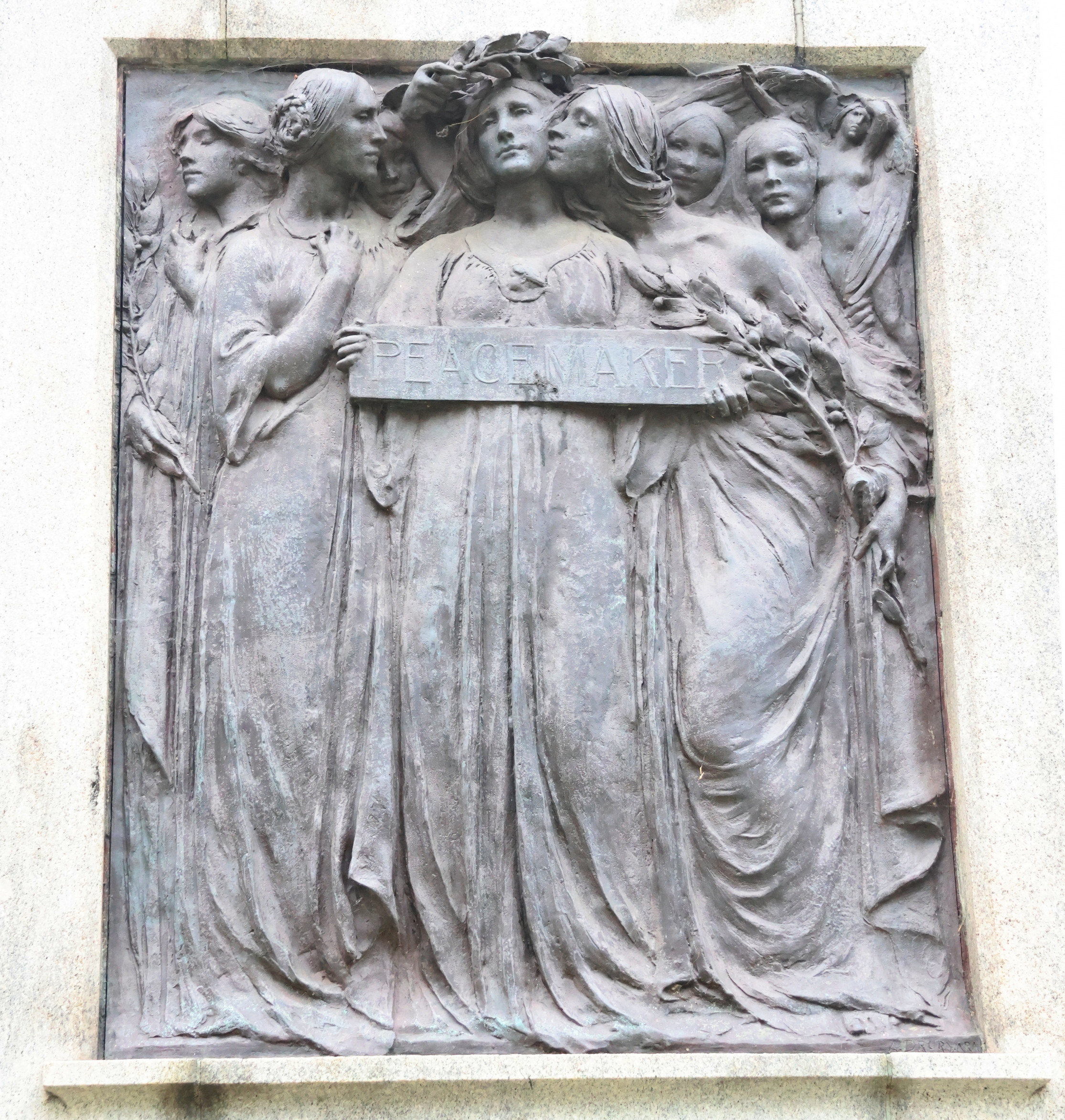
You can go for a walk that takes in five weirs on the River Don. It’s the same name as the River Don that flows through Russia and Ukraine; both have an ancient Celtic origin, apparently.
I wandered downhill through the campus of Sheffield Hallam University, which includes Hallam Square.

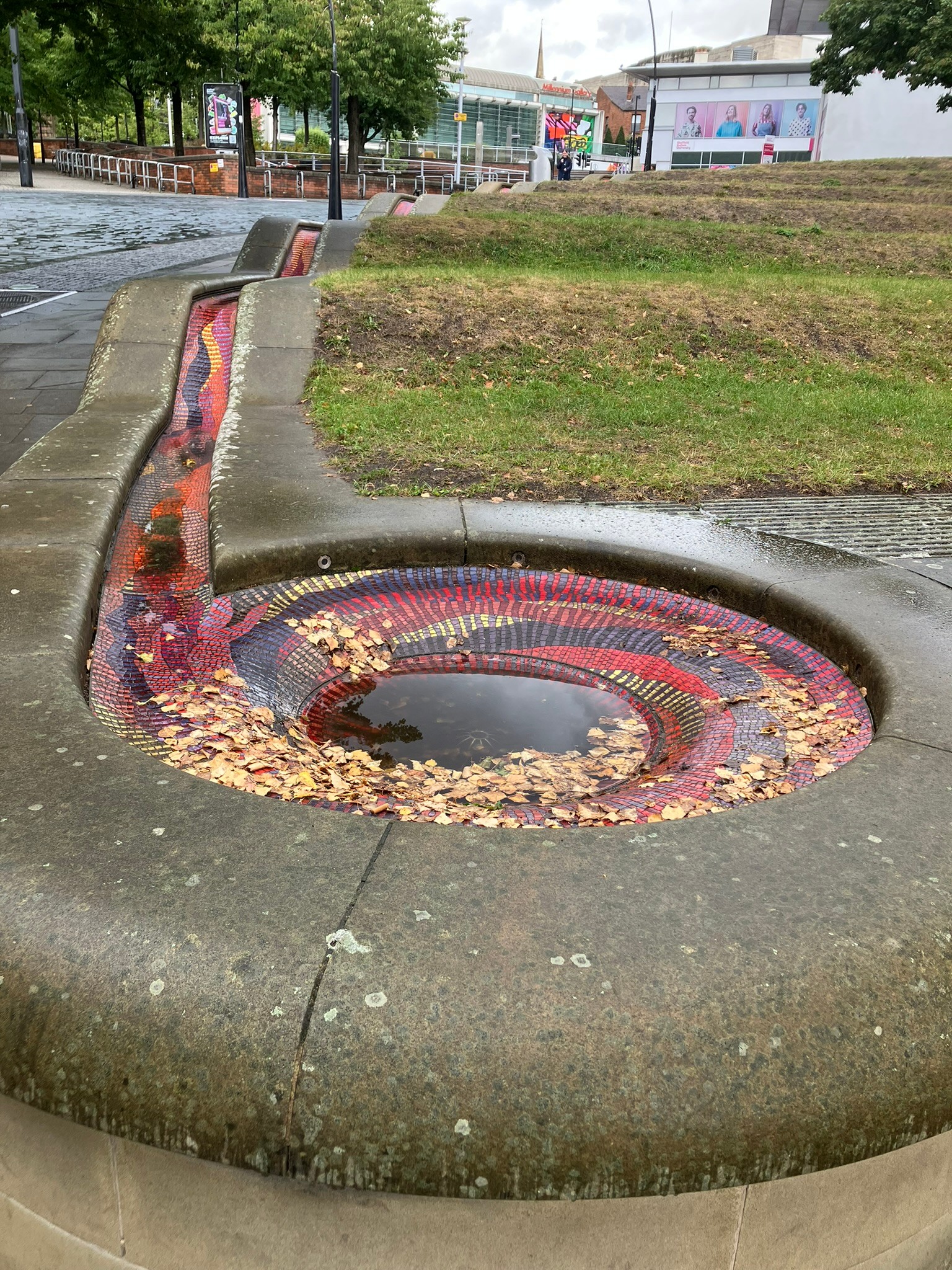
In the suburbs, there is a shopping mall called Meadowhall, built on the site of a steel foundry that made great breakthroughs in the 1800s, when steel went from being a rarity to something common.
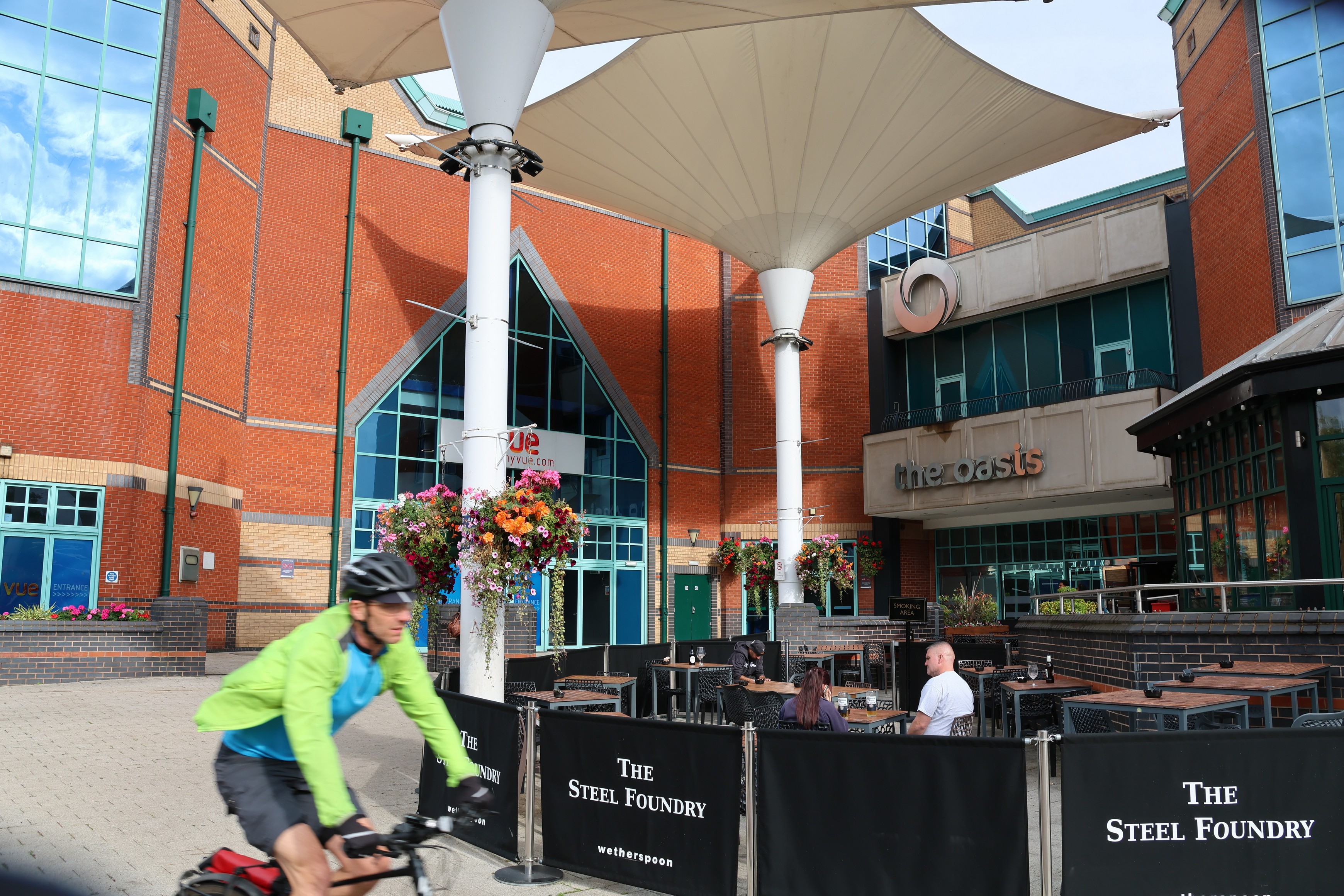

From Sheffield, I headed back to Warrington to catch up with an old friend in Riad, a Moroccan brunch café in the premises of an old bank. I had Moroccan eggs, which were marvellous, though I didn’t want to disturb the meeting by taking a picture of them.

The old bank, founded in 1788, was pretty spectacular inside, again a sign of how prosperous the region once was.


From Warrington, I then took a train back to London, which you pretty much have to do if you want to explore anywhere in the southeast; for the historic university town of Cambridge was my next destination.
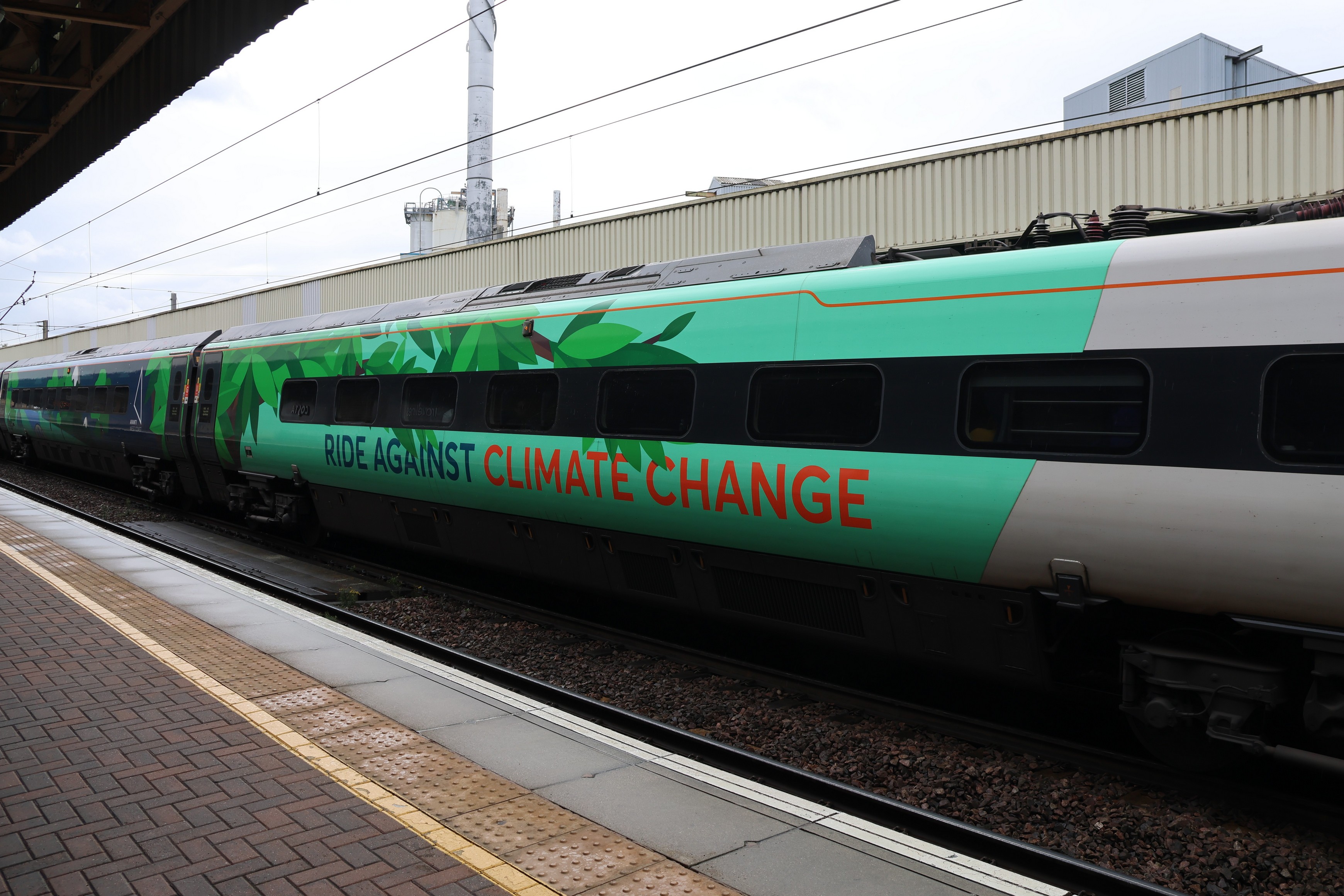
Subscribe to our mailing list to receive free giveaways!